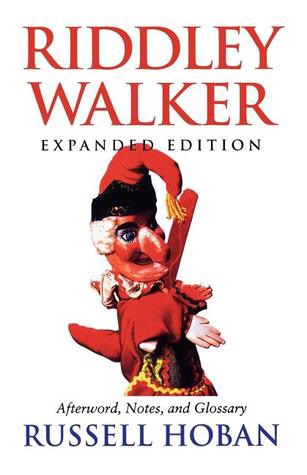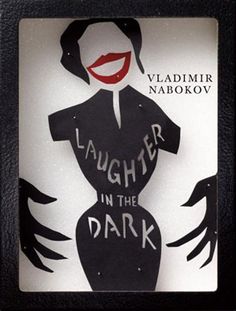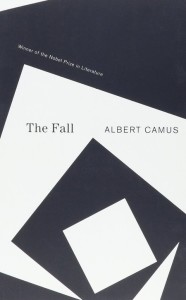On New Year’s Day, 2016, I looked at my bookshelf and thought it was time to read the stack of books that was piling up, most of them top fiction recommendations from others. It was time to re-enter the world that had inspired me to write in the first place: The intersection of imagination, craft, and storytelling.
So I committed to emptying as much of the shelf as possible this year. Some books have traveled with me since college. Others arrived just yesterday.
They were bought on strong recommendations, as research for another book, or sometimes just because they looked cool on some street bookseller’s table on St. Mark’s Place. They were mostly written over the last 100 years, and fall into the realm of literature.
This post has been updated as I’ve finished each book. Rather than simply adding the newest book to the top, I’ve ranked them in order of most to least favorite.
See the bottom of this post for a list of my favorite reading from 2015.
FICTION READING 2016 (FROM MOST TO LEAST FAVORITE)

BOOK: The Dwarf
AUTHOR: Per Lagerkvist
RECOMMENDED BY: Wendy Asher (Friend)
MY RECOMMENDATION: Must Read
It’s no surprise that this book was written at the end of World War II in Europe, a continent torn apart by war and evil. The Dwarf is set some 500 years earlier, in a Prince’s court in a city-state in Renaissance Italy. It is a book about the savage pointlessness of war and the rationalizations through which human beings attribute evil deeds to supposedly righteous intentions. It is a quick and unforgettable read, as dark as the heart of the unnamed dwarf who narrates this classic by Nobel Prize winner Per Lagerkvist. Here’s one of the less nihilistic quotes from the book:
One for whom a pebble has value must be surrounded by treasures wherever he goes.
.jpg/220px-This_Way_for_the_Gas_-_Borowski_(front_cover).jpg)
BOOK: This Way for the Gas, Ladies and Gentlemen
AUTHOR: Tadeusz Borowski
RECOMMENDED BY: Shari Smiley (Film Agent)
MY RECOMMENDATION: Must Read
I began my book Emergency with a quote from this book: “There is no crime a man will not commit to save himself.” Yet I’d never read it. I should have. The book is an anthology of short stories by the Polish poet Tadeusz Borowski, all based on his real-life experiences in Auschwitz, and other Nazi prisons and concentration camps, as a Polish political prisoner. It is unlike anything I’ve read before on the subject, because the focus is not so much on the brutality of the SS guards, but on the prisoners to each other and the camp system enforcing this murderous complicity.
There are images you will never forget, such as when he observes, ““Between two throw-ins in a soccer game, right behind my back, three thousand people had been put to death.” There are feelings he conveys that will shock you, such as the combination of hatred and greed the prisoners feel when unloading the trains full of fellow human beings on their way to the gas chambers.
And then there are passages like this:
It is we who built the pyramids, hewed the marble for the temples and the rocks for the imperial roads, we who pulled the oars in the galleys and dragged wooden ploughs, while they wrote dialogues and dramas, rationalized their intrigues by appeals in the name of the Fatherland, made wars over boundaries and democracies. We were filthy and died real deaths. They were ‘aesthetic’ and carried on subtle debates.
There can be no beauty if it is paid for by human injustice, nor truth that passes over injustice in silence, nor moral virtue that condones it.
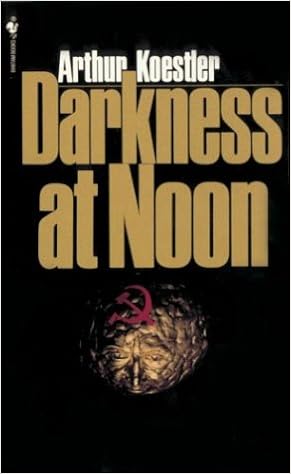
BOOK: Darkness at Noon
AUTHOR: Arthur Koestler
RECOMMENDED BY: Listed by Modern Library as the eighth greatest novel (and I’d read the seven novels above it)
MY RECOMMENDATION: Read if you’re interested in the psychology of oppression, Stalin & the Russian Revolution, or the dark side of serving a cause you believe to be greater than yourself
This prison novel is a perfect example of why I recommend that people who want to learn read literature rather than non-fiction. While Koestler’s politico-psychological masterpiece isn’t for everyone, it gave me such a greater understanding of the present (especially false prison confessions), the past (especially Stalin and his purges), and human psychology, especially the double-speak and fear that power wields to maintain itself. It allowed me to understand how those who do wrong, at the cost of millions of life, are able to believe (and have their followers believe) that they are doing right. It is a powerful portrait of a man about to be slain by the very hand which he has dedicated his life, and forsook his morality, serving. And it is a larger tragedy that history continues to play out in human history, in which a moral, political, or religious idea becomes a threshing machine on which countless human lives are thrown–and, in the process, dooms itself by the very means it uses to achieve its ends.
One cannot build Paradise with concrete.
BOOK: Riddley Walker
AUTHOR: Russell Hoban
RECOMMENDED BY: Wish I could remember so I could thank them.
MY RECOMMENDATION: Must read if you are into post-apocalyptic, experimental, or innovative literature
After finding The Stand too plodding and A Void too clever (see below), it felt like a good time to finally complete the daunting post-post-apocalyptic novel Riddley Walker–which has some of the supernatural elements of the former and linguistic innovation of the latter. This genius book is set more than 2000 years after a nuclear holocaust. Human civilization has had to re-invent itself from scratch, and is living at Iron Age levels. This means that the language, mythology, geography, and societal structure of Riddley Walker is all new. And it is written in the language of the time, which is both challenging and fun getting deciphering and getting used to: “Parbly you look it 2ce when you only shudve lookit 1ce.” “England” becomes “inland,” “Prime Minister” becomes “Pry Mincer.” As civilization rebuilds itself, fated no doubt for the same end all over again, work gangs mine the earth for the detritus of the past in hopes of both using the materials and recreating the glory of an ancient civilization (ours) that somehow had “boats in the air and picters on the wind.” The book is masterful in its imaginative reach and mythic scope. Most incredibly, inside the folk wisdom of Riddley’s world, there’s a deep spiritual backbone as Hoban examines the destructive nature of man’s greed and the infinite connectedness of the universe. Along with Cormac McCarthy’s The Road, Riddley Walker is one of the all-time literary classics of the genre. Would love to see someone attempt a film version.
Goodparley said, “Wel said Riddley. Now tel me this. If Eusa cant wake up out of it then whats he got to do?”
I said, “Wake up in to it.”
He said, “Thats it. And if Eusa cant dy out of it then whats he got to do?”
I said, “Live in to it
.jpg/220px-The_Prophet_(Gibran).jpg)
BOOK: The Prophet
AUTHOR: Kahlil Gibran
RECOMMENDED BY: U-God of the Wu-Tang Clan, during my Rolling Stone interview with them
MY RECOMMENDATION: Must read
If this were another list, The Prophet might be at the top of it. I’m shocked that it’s taken me so long to read this masterpiece of eloquent wisdom. The reason it’s below some of the great books above is because it’s purpose is more didactic than narrative, though it’s literary qualities abound. If you haven’t read this book, and you are a reader of mine, I advise getting it instantly. In short poetic verse, the eponymous character of this book dispenses deep, spiritual, true, and timeless advice on love, life, and everything in between. The power of this book lies not just in the ideas expressed, but in the way in which the ideas are expressed. The poetic verse and sharp metaphors drive them home to a much deeper place than a more anecdotal or plain-spoken self-help book could. They land not just in your brain, but in your heart and spirit.
Much of your pain is self-chosen.
It is the bitter poison by which the physician within you heals your sick self.
Therefore trust the physician, and drink his remedy in silence and tranquility.
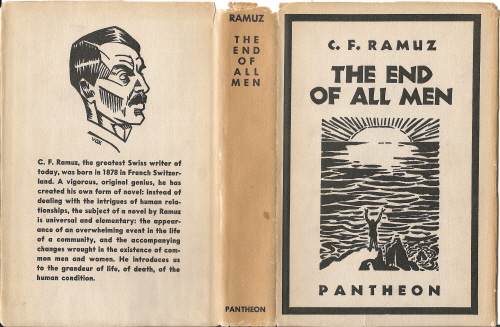
BOOK: The End of All Men
AUTHOR: CF Ramuz
RECOMMENDED BY: Street Vendor Table (St. Mark’s Place)
MY RECOMMENDATION: Read Conditionally
I have never read a book like this. It is not for everyone, but for someone interested in poetry or the art of writing, it is inspirational. The book is a meditation on the end of the world, on human nature and human existence, as the sun moves closer and closer to the earth. Here is an example of the rhythm of Ramuz’s phrasing. (Wish I could read it in the original French):
I have loved the world too much; I see that I really have loved it too much. Now that it is about to go. I have been too much attached to it; I see now that it is detaching itself from me. I have loved the whole of it, in spite of itself. I have loved it in spite of its imperfections, having seen that it is through these alone that perfection exists; and that it was good because evil.
Note: I included the full jacket image above because the author illustration was so disturbing.

BOOK: Johnny Got His Gun
AUTHOR: Dalton Trumbo
RECOMMENDED BY: Many people & articles
MY RECOMMENDATION: Recommended Read
Imagine that you are slipping in and out of consciousness. You realize at some point that you are in a hospital. You’ve been injured on the battlefield. You sense that one of your arms has been amputated. That’s okay, you figure, you can be a cool one-armed person. Then you realize the other arm is gone too. You come to terms with that, only to realize that your legs are gone. That’s tough to deal with, but it gets even tougher when you realize that part of your face was blown off and you have no eyes, ears, or nose. You are trapped in the rotting piece of meat that is your body. So begins Dalton Trumbo’s ahead-of-its time anti-war opus Johnny Got His Gun. Published in 1939 and set in World War I, the book asks the question: Are words like freedom and concepts like country worth dying for? Trumbo’s answer is a resounding no. Don’t miss the equally powerful introduction by Ron Kovic either!
Is it American honor for the whole world we’re fighting for? Maybe the world doesn’t like it. Maybe the South Sea islanders like their honor better.

BOOK: Barabbas
AUTHOR: Per Lagerkvist
RECOMMENDED BY: Because The Dwarf Was So Good
MY RECOMMENDATION: Recommended Read
An amazing work of fiction that begins where the New Testament left off: When Pontius Pilate gives the people of Jerusalem the choice of committing one prisoner’s death sentence, either Jesus or Barabbas–and they choose the latter. This book follows Barabbas to his eventual death. Along the way, this perfectly composed parable examines the existential crisis of living at the expense of the life of “the son of God,” and more crucially examines Barabbas’s (and every man’s) struggle with faith. As Barabbas puts it to the Roman governor, “I want to believe.”
They spoke of [Jesus] having died for them. That might be. But he really had died for Barabbas, no one could deny it!…He was chosen, one might say, chosen to escape suffering, to be let off. He was the real chosen one, acquitted instead of the son of God himself–at his command, because he wished it.
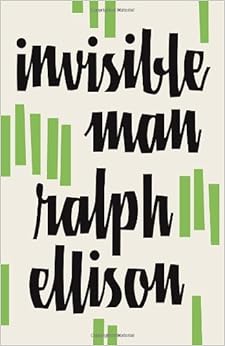
BOOK: Invisible Man
AUTHOR: Ralph Ellison
RECOMMENDED BY: Its reputation
MY RECOMMENDATION: Worth Reading
This novel is so much more than its reputation. it is a fiercely and artfully individualist stitching together of several allegories into the life story of an unnamed protagonist. The book examines and critiques so much of American life in the 1950s, from the American Communist Party, the accomodation of Booker T. Washington, the nationalism of Marcus Garvey, the overt racism of the American South, and the covert racism of the American North. The tragedy of this book is not just its depiction of the racism of its time, but how much still hasn’t changed. It is also a modernist masterpiece, with just two flaws. One is a flaw shared by Henry Miller: There are passages of self-conscious literary ambition that come across more like filler than substance. And the other is a penchant to use hyperbole to transition between scenes or to stress a larger point. Overall though, especially Ellison’s account of his protagonist’s making and unmaking at the hands of the Communist Party, it’s a peerless novel–and it’s a shock that Ellison never published another in his lifetime.
What and how much had I lost by trying to do only what was expected of me instead of what I myself had wished to do? What a waste, what a senseless waste!
BOOK: The Things They Carried
AUTHOR: Tim O’Brien
RECOMMENDED BY: My brother
MY RECOMMENDATION: Optional Read
This is another classic, so often on classroom reading lists about the Vietnam War. It’s been on my “to read” list for decades. What I love about it is the way O’Brien plays with time in his stories, moving back and forth over a scene, each time with greater focus or detail, as if you’re replaying the Zapruder film trying to see exactly what happened. He plays with truth in the same way, until what actually happened barely matters anymore. Like Borowski in This Way to the Gas, there is a poetry to O’Brien’s telling; but unlike Borowski, O’Brien witnessed far less horror for much less time (roughly a year) and more is made of second-hand/third-hand/fictionalized stories than in Borowski’s work. Highlights include O’Brien’s story about trying to run to Canada after he was drafted, and the vignette where he can’t stop staring at the body of the first person he may or may not have killed, trying to imagine the hopes, dreams, and pacifism of the life he just snuffed.
A true war story is never moral. It does not instruct, nor encourage virtue, nor suggest models of proper human behavior, nor restrain men from doing the things men have always done. If a story seems moral, do not believe it. If at the end of a war story you feel uplifted, or if you feel that some small bit of rectitude has been salvaged from the larger waste, then you have been made the victim of a very old and terrible lie. There is no rectitude whatsoever. There is no virtue. As a first rule of thumb, therefore, you can tell a true war story by its absolute and uncompromising allegiance to obscenity and evil . . . If you don’t care for obscenity, you don’t care for the truth.

BOOK: On the Road & On The Road: The Original Scroll
AUTHOR: Jack Kerouac
RECOMMENDED BY: The World
MY RECOMMENDATION: Optional Read
It’s rare that one gets the opportunity to read both the first draft and the final draft of a classic work of literature simultaneously. But that changed with the publication of the original scroll, which Jack Kerouac, in three addled weeks in 1951, typed the entirety of On the Road on–single spaced in one enormous paragraph on several sheets of taped-together tracing paper. So I read side by side these two versions of what’s basically an infatuated memoir of the author’s jaunts with Neal Cassady.
The verdict: The final draft is better. But the original draft is educational. It’s great to get the real names of the Beat luminaries (Cassady, William Burroughs, Allen Ginsberg) whose identities were changed by Kerouac’s jittery publisher in the final edition. And it’s a tragedy to witness censorship and moral prudishness at work. Kerouac watches as Cassady has sex with a man they’re trying to get money from in the scroll; in the final version of the book, there is no reference to sex even happening. I wish there were a combined version of these two texts: A sort of On the Road Uncensored. But barring that, it is ultimately in the edited final book that Kerouac has the time to indulge in the jazzy literary flights of language that made his reputation, and give the book the poetic frenzy that made a generation want to hitchhike across the country and live in the moment, burning, as the famous line goes, “like fabulous yellow roman candles exploding like spiders across the stars.”

BOOK: The Son
AUTHOR: Philipp Meyer
RECOMMENDED BY: Bookstore Clerk (Diesel Books)
MY RECOMMENDATION: Hard-to-Put-Down Read
Every so often, an author takes on the sprawling myth of America. And every so often they do it justice. Which is exactly what Philip Meyer does in this 561-page epic in which Texans, Mexicans, and those who call themselves Americans fight, shoot, and scalp their way through 200 years of history. Guess who “wins”?
Perhaps what William Burroughs’s straight-forward Junkie is to his cut-up Naked Lunch, the accessible Son is to Cormac McCarthy’s poetic Blood Meridian.
The Americans… They thought that just because they had stolen something, no one should be allowed to steal it from them. But of course that was what all people thought: that whatever they had taken, they should be allowed to keep forever.
 BOOK: Salmonella Men on Planet Porno
BOOK: Salmonella Men on Planet Porno
AUTHOR: Yasutaka Tsutsui
RECOMMENDED BY: An amazing reading list that I found online and can’t seem to locate now
MY RECOMMENDATION: Highly recommended, but only the specific stories mentioned below
If you are a fan of the short stories of Haruki Murakami, then make this your next purchase. The prolific, but rarely translated Yasutaka Tsutsui shares the same breezy, likeable surrealism. Though this book of short stories is uneven and can get repetitive, especially his cynical depictions of relationships, the best tales are ones you’ll want to share with your friends. So no need to read the entire book. Just make sure you read the following stories:
“The Dabba Dabba Tree,” in which a small cedar tree placed at the foot of one’s bed gives the sleepers erotic dreams that seem to merge with real life.
“Rumors About Me,” in which the minor details of an average Japanese salaryman’s life, such as his rejection when asking a co-worker out on a date, become front-page news.
“Commuter Army,” in which the military modernizes its recruitment process and turns soldiering into a 9-to-5-type job, with tempting benefits
“The World Is Tilting” and “The Last Smoker” are both stories that seemed all-too relevant to current events: The first one could serve as an analogy for climate change, the second for mass hysteria and genocide.
No quote here. It’s all about Tsutsui’s style. So just go read “The Dabba Dabba Tree” in full and see for yourself.

BOOK: Pere Goriot
AUTHOR: Honore de Balzac
RECOMMENDED BY: Always wanted to read Balzac
MY RECOMMENDATION: Maybe read it if you’re bitter about life
Most say that this book (also known as Old Man Goriot) is the best starting point for those looking to read Balzac. Unfortunately, it’s also going to be my ending point. This literary fable critiquing Parisian society is thoroughly enjoyable, but it reads like it needs a good developmental edit. Too often, the author intrudes to speak to the reader (at one point he apologizes that a flirtatious dialogue looks “pathetic…in cold print”). Other times, twists of plot (and disastrous events all happening at the same time) seem far-fetched. And the cynicism of the book’s fantastic and eloquent villain, Vautrin, is not all that different from the cynicism of the author’s own voice at times. Except the author comes across as more curmudgeonly. The book is also full of gross generalizations and platitudes about what women are like, what students are like, what rich people are like, what poor people are like, what Parisian society is like, and so on. Example: “Parisian women may be false, blind with vanity, selfish, flirtatious, cold; but when they are really in love, they sacrifice more than other women to the object of their love.” Considering that Balzac wrote somewhere in the neighborhood of 100 novels and short stories, the book’s imperfections and lack of nuance shouldn’t come as a surprise (even the translator admits to fixing 200-300 of Balzac’s “slips”). Glad I read it, but I wouldn’t recommend it. Though this great quote from Pere Goriot does pre-date a similar quote attributed to Oscar Wilde:
“I’m tormented by wicked impulses.”
“What sort? You can cure impulses, anyway.”
“How?”
“By giving in to them.”
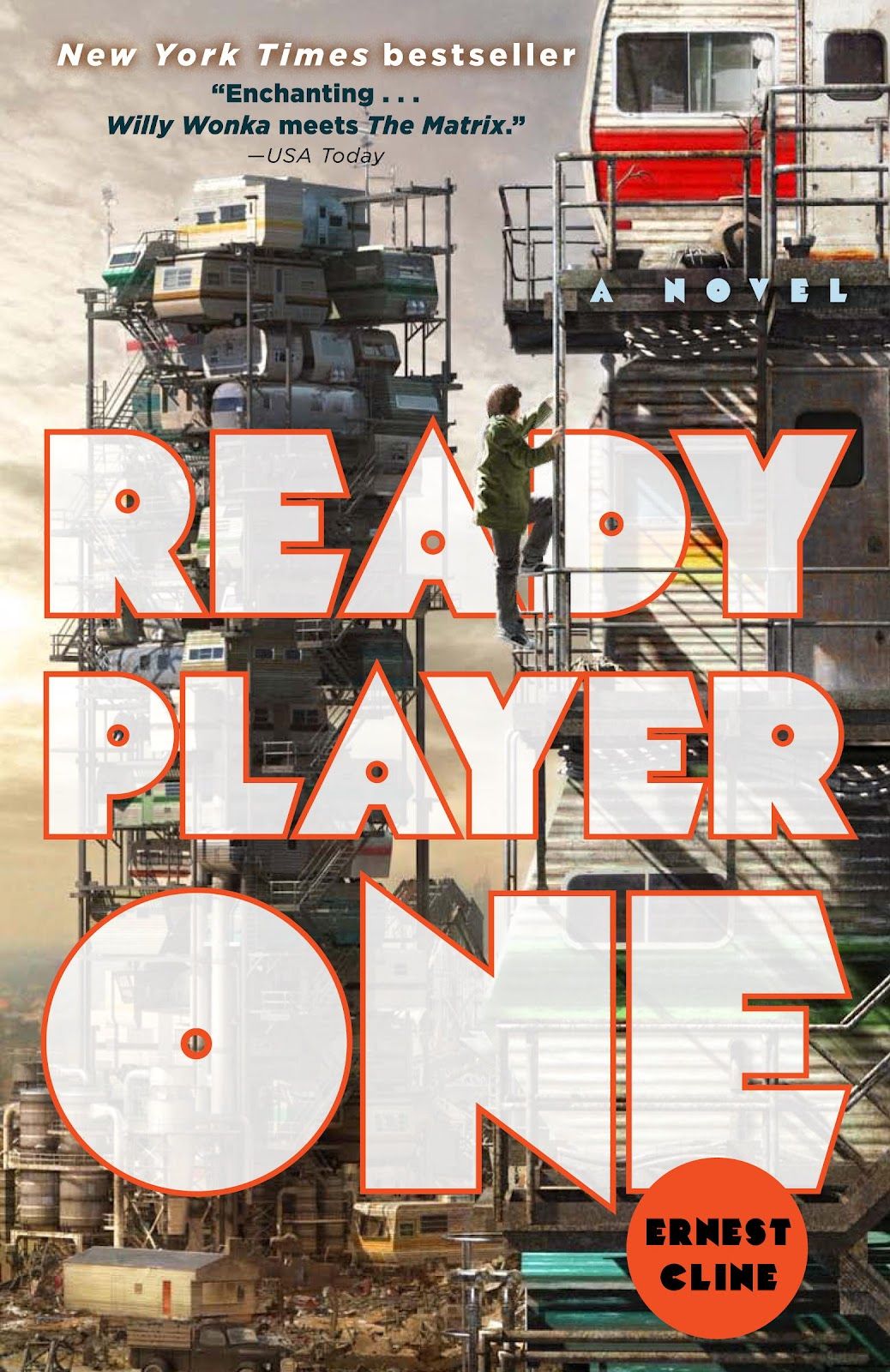
BOOK: Ready Player One
AUTHOR: Ernest Cline
RECOMMENDED BY: A journalist who interviewed me
MY RECOMMENDATION: Read if you ever: A. Owned an Atari 2600 B. Used a computer with a cassette player as a hard drive. C. Know what movie the line “I want my two dollars!” is from. D. Had an avatar on Second Life. E. Liked the David Cronenberg film Existenz. F. As soon as you hear the word “module,” you think of Dungeons & Dragons.
The moment Cline started talking about the easter egg in the Atari game Adventure, I was in. On one level, Cline is like his character billionaire James Halliday: Ready Player One is a love letter to 80’s video/computer games, pop music, teen films, kitsch culture, and classic sci-fi. It exists to turn you on to Cline’s obsessions in the way Halliday’s virtual-reality treasure hunt in the book does for its characters. At the same time, it’s a hard-to-put-down read, with a compelling story that hooks you within a few chapters and lays out a plausible 2044 world, in which our online avatars have become more than our real-life bodies. In a sense, it’s Ender’s Game for the 2010’s. I’m providing no quote for this book, because there’s little wisdom to take away from it: Just movies to watch, retro games to play, books to read, and a story that will make a great film. It’s all there: Even Burger Time gets a mention.
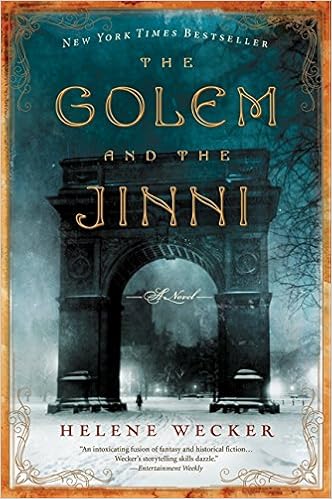
BOOK: The Golem & The Jinni
AUTHOR: Helene Wecker
RECOMMENDED BY: Clerk at Changing Hands Bookstore in Arizona
MY RECOMMENDATION: Thoroughly Enjoyable Read If You Like Fantasy-Meets-Historical-Fiction
A Golem-without-a-master meets a Jinni-with-amnesia in the streets of turn-of-the-century New York (1899). I found Mark Helprin’s Winter’s Tale sinfully over-written. By contrast, The Golem & The Jinni has the same amount of magic, history, and love in the slums and mansions of New York, yet not a word feels extraneous. A great book to lose yourself in.
I see hundreds of men every week at the Sheltering House. They all need the same things–a place to stay, a job, English lessons. But some will be happy with whatever comes their way, and others won’t be satisfied with anything. And there’s always a few who are not only looking to take advantage. So when my friends talk about how best to fix the world, it all sounds so naive. As though there could be one solution that would solve every man’s problems, turns us into innocents in the Garden of Eden. When in truth we will always have our lesser natures.

BOOK: Patriotism
AUTHOR: Yukio Mishima
RECOMMENDED BY: Wanted to read after reading Mishima’s other work
MY RECOMMENDATION: Read Mishima’s beautiful “Spring Snow” first. Also watch Paul Schrader’s incredible film Mishima.
This is actually a short story that’s been given its own book. In the aftermath of Mishima’s own seppuku (ritualistic “honor” suicide, done by cutting open the abdomen), it is a clear foreshadowing of what was to come in the writer’s own life. Add to this the stark short film that Mishima directed and starred in, based on this story, and you have all the ingredients for the tragedy that was to come. Patriotism is the story of a loyal Lieutenant ordered to lead a strike against his best friends in the Imperial Army, who have begun a mutinous rebellion. Rather than betray his friends or the Imperial Army itself, he chooses to commit seppuku along with his wife, Reiko. The story is chilling in its portrayal of death as duty, as honor, as ritual, as high morality. Every image and phrase is imbued with this context, much in the way every sentence and image in an Ayn Rand novel is symbolic of this book’s opposite: individualism. The only thing marring the meticulous (and from my particular cultural context wrong-headed and disturbing) beauty of this story are the stray typos in this edition, including one on the very first page. If you are familiar with the life and work of Mishima, read this. If not, read his classic novels first (my favorite is Spring Snow).
Thus, so far from seeing any inconsistency or conflict between the urges of his flesh and the sincerity of his patriotism, the lieutenant was even able to regard the two as parts of the same thing.
 BOOK: The Charterhouse of Parma
BOOK: The Charterhouse of Parma
AUTHOR: Stendahl
RECOMMENDED BY: Italo Calvino
MY RECOMMENDATION: Pass
Last year, I read Flaubert’s A Sentimental Education and was simultaneously transported, educated, and awed. But where Flaubert felt polished and timeless to me, Stendahl here reads as rushed and dated, written for readers of his time and not for the ages. This much is clear from the first sentence, when Stendahl explains that the novel was written before the Parisian “affairs of 1939,” so thus they are not accounted for. For a moment, while reading of the protagonist Fabrizio del Dongo’s Don-Quixote-like attempt to serve in the Napoleonic Army, this reads like a great work. The section captures war in a way that Joseph Heller and Celine would pull off centuries later. But in the end, the novel is the long-winded story of a handsome idiot who makes really bad decisions, and of all the courtly machinations, senseless deaths, and interminable plotting that others waste their lives with in order to save him from the consequences of his own foolish behavior. Italo Calvino, one of my favorite writers, called this book “the best novel ever written.” And while I found parts of it superlative, the greater part of it was tedious. This quote then is a paraphrase from Le Fontaine that appears in the novel:
Petty princes, settle your disputes among yourselves;
You’d be quite mad to call in kings.
Never involve them in your wars.
Never bring them onto your land.
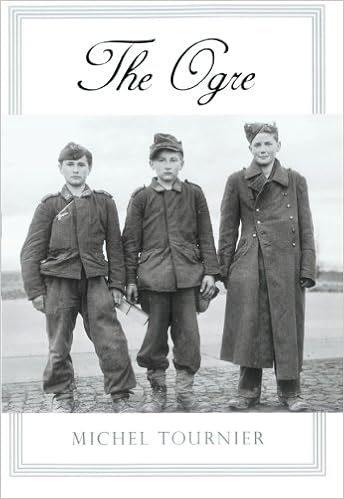
BOOK: The Ogre
AUTHOR: Michel Tournier
RECOMMENDED BY: The New Yorker (as the most important French novel since Proust’s)
MY RECOMMENDATION: For taxonomists and WWII literature readers
Tournier, one of France’s leading novelists, passed away earlier this year, so it felt like time to take The Ogre off the shelf and dive into the world of a French prisoner of war in Germany, who finds his calling as, in succession, a naturalist, a hunter, a mechanic, a taxonomist, and, eventually, a fledgling Gilles de Rais-type monster. It’s list-y writing at times, and the ending chapters of the book become an extremely uncomfortable Lolita-like experience. But like Kosinski’s The Painted Bird, it is a different take on the human psyche responsible for Nazi atrocities, and contains unsettlingly bucolic scenes at Hermann Goring’s hunting estate that contrast with the usual literary fare of the era.
I know now why the absolute power of a tyrant always ends by driving him mad. It’s because he doesn’t know what to do with it. Nothing is harder to endure than the imbalance between infinite power and limited knowledge.
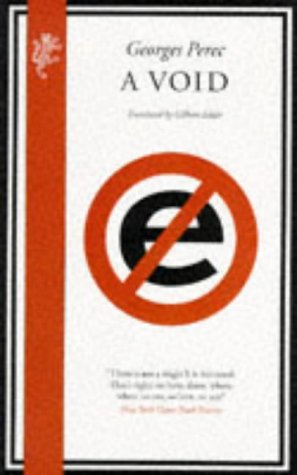
BOOK: A Void
AUTHOR: Georges Perec
RECOMMENDED BY: Ex-Girlfriend
MY RECOMMENDATION: For Lipogrammaticians Only
Only if you either know or looked up the word above should you even consider reading this novel. Otherwise, confine yourself to reading about it. It is a work of genius: Perec chose to write an entire novel without using the letter “e.” It is a feat all the more remarkable when one considers who often that letter is used in the French language to indicate feminine words. The novel itself is a postmodern mystery full of clues, puzzles, and word games about the various vowels and the one that has gone missing. I found the book admirable but not enjoyable. Props to translator Gilbert Adair for pulling this off in English. Perec wrote a story afterward that only used the letter “e,” but I have yet to indulge in it.
Rather than a boxed quote: One of my favorite sections was Perec’s attempt to rewrite classic works of literature without using the letter e. See if can guess which one this is from: “Quoth that Black Bird, ‘Not Again.'”

BOOK: The Tenth Man
AUTHOR: Graham Greene
RECOMMENDED BY: Can’t Remember – Someone, in an interview, said this minor work was his best
MY RECOMMENDATION: A Quick Plane Read
The introductory matter to this book is as amazing as the short novel. First of all, Greene couldn’t remember having written it until a film producer mentioned that he’d found the manuscript in the studio archives. Evidently, it was written not as a novella, but as a film pitch. And the book begins with two other short film pitches of Greene’s, each equally compelling stories. This one begins with a group of war prisoners told to determine which three of them will die. They draw straws. One decides to offer his considerable fortune to any man who will go in his place. One man does so, giving the wealth to his surviving family. This is the story of what happens next.
The restless playboy knew how to offer what people wanted more than love–peace.
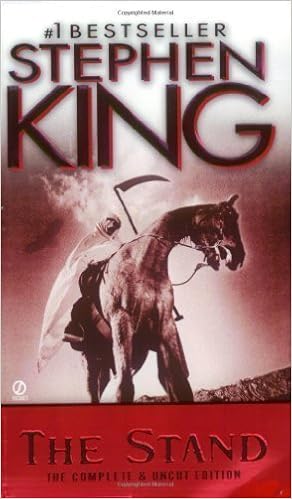
BOOK: The Stand: Complete and Uncut Edition
AUTHOR: Stephen King
RECOMMENDED BY: Survivalists while I was researching Emergency
MY RECOMMENDATION: Pass, unless you’re a King fan
Ninety percent of the time, when a book editor suggests cutting a section, they’re right. This apocalyptic epic is not King’s strongest work, even by his own admission.

BOOK: The Curious Incident of the Dog in the Night-Time
AUTHOR: Mark Haddon
BOOK: The Night Circus
AUTHOR: Erin Morgenstern
MY RECOMMENDATION: See below.
These two books have been highly successful best-sellers and loved by many. Yet, although I was hoping Night Circus would strike me like Geek Love did and that The Curious Incident‘s mix of prose & picture would inspire me, I’ve found them less enjoyable than most of the books on the lists above and below. It may be that I am always reading with my pen out, ready to mark passages and ideas that strike me, and there was nothing that I marked in these. Or it may be that while reading, I felt that whole sections of the books could be omitted without it harming the overall reading experience. Or maybe my taste tends to veer more toward literature than fiction, though I’d be hard-pressed to produce a definitive distinction between the two. I suppose, on some level, one reads fiction to lose oneself in another world, reality, mind, story, or worldview, and for whatever reason, these simply lost me, albeit I was moved at times by The Curious Incident and Morgenstern definitely brought The Night Circus alive as a character in itself.
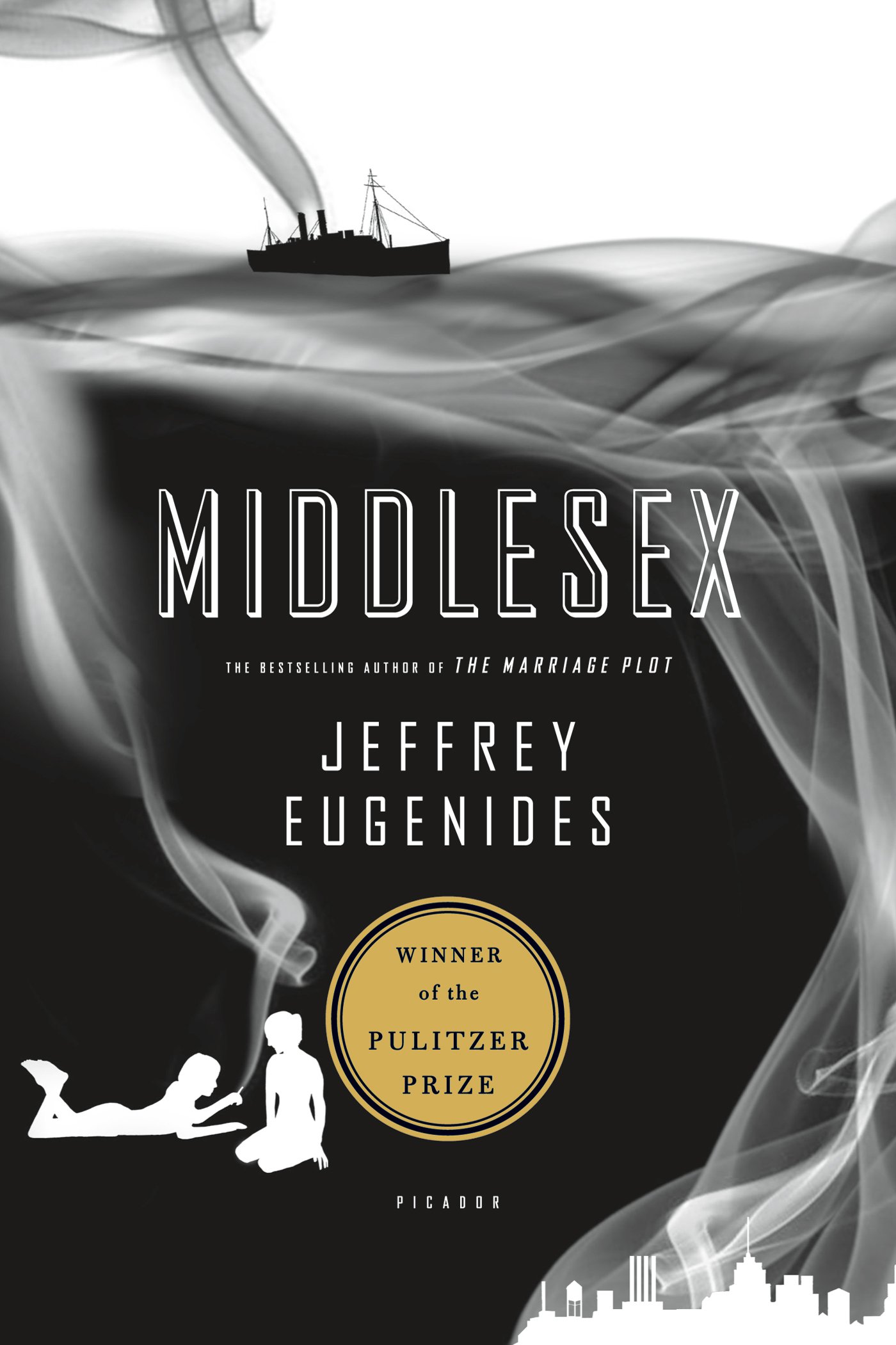
BOOK: Middlesex
AUTHOR: Jeffrey Eugenides
RECOMMENDED BY: Same Diesel bookstore clerk who recommended The Son
MY RECOMMENDATION: Pass
This novel is so immaculately written and told, and so well-regarded (Pulitzer Prize, Oprah’s Book Club, and other top fiction recommendations), that perhaps I expect too much of it. It’s an epic chronicle of three generations of a family with a shameful secret (paternal grandad and paternal grandma are actually siblings). that leads to another shameful secret (grandchild is a hermaphrodite). Combine this with the incredible backdrops of war, immigration, racism, post-war urban America, gender identity, and a coming-of-age tale, and how could it be anything less than gripping and revelatory? Yet while I found parts to be like that–Lefty and Desdemona’s escape from burning Smyrna, Desdemona’s time with the Nation of Islam, Cal’s story in the last hundred pages of the book–I found grand chunks of the book to be simply descriptive narrative that plodded on more to be completist than to be meaningful. And while I’m a fan of starting books before the narrator is born (see Tristram Shandy) as well as elevating the mundane to the mythical (see Joyce’s Ulysses), the narrator’s voice here, when ascribing exaggerated importance to the minor details that led to his birth and life, felt grating. I’d looked forward to reading this book for so long, yet once I began its 529 pages, I couldn’t wait for it to end.
BOOK: The First Century After Beatrice
AUTHOR: Amin Maloouf
RECOMMENDED BY: After Reading His Excellent Samarkand
MY RECOMMENDATION: Avoid
I read Amin Maloouf’s Samarkand while traveling to that very city. As soon as I put that work of historical fiction down, I called my agent and discovered that this French-Lebanese writer didn’t have an American publisher. It was a crime: I insisted he get published. Yet now I finally moved on to one of his other works, a professorial science fiction book about genetic experimentation, and found it logically specious and a reading chore. Despite this, I still want to read his non-fiction work The Crusades Through Arab Eyes, which flips the script on the “history belongs to the victors” paradigm. This book consults journals and primary-source documents to depict just how ignorant, backward, and savage the Crusaders looked at the time to the Muslims.
BONUS: THE BEST OF 2015
I wish I had done this post last year. After finishing The Truth, I began devouring novels voraciously. So as not to make this post too long, I will include the ten favorites that I read in late 2015, in order. Every one of these is recommended (except maybe Oblomov, which makes its point pretty quickly).
1. Laughter in the Dark by Vladimir Nabokov
Contains perhaps the best first paragraph in all of literature.
2. Last Exit to Brooklyn by Hubert Selby Jr.
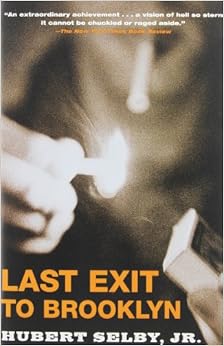
Read this for the power and uniqueness of its prose, which bursts off the page in a psychological avalanche of rage, pain, and disconnection.
3. House of Holes by Nicholson Baker

Without doubt, the weirdest and funniest book about sex ever written or imagined.
4. Ladies’ Man by Richard Price

An under-rated, at times hilarious, 70’s classic of everyday urban isolation and self-sabotage.
5. Martin Eden by Jack London

A fascinating and over-looked Jack London book about one of my favorite topics: struggling writers with one-itis. See also: Ask the Dust.
6. The Fall by Albert Camus
See: My Post On The Fall vs The Game
7. The Ginger Man by J.P. Donleavy

A theme to this list of books: self-sabotage. And Sebastian Dangerfield, the main character of this classic but somewhat forgotten stream-of-consciousness novel, is the most self-sabotaging of them all. He’s a thoroughly depraved husband, law student, alcoholic, philanderer, and minor con man who’s wearing out his welcome quickly in Dublin. In the first few chapters, I couldn’t wait for it to end. By the end of the book, I was sad it was over. Donleavy’s writing style is the literary equivalent of his character’s sloppy drunkenness. And I mean that as praise.
8. A Sentimental Education by Gustave Flaubert
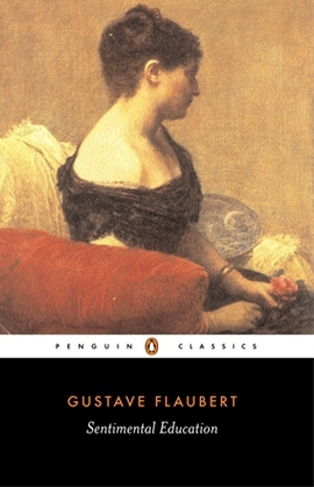
An epic tale of one-itis that taught me more about nineteenth century France than any history book.
9. Oblomov by Ivan Goncharov
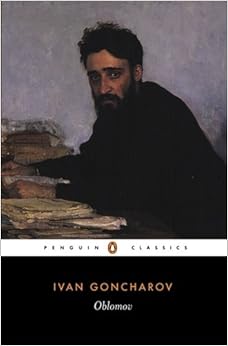
A character study in laziness, procrastination, and rationalization–and a fascinating portrait of nineteenth century Russian society. Warning: Like the main character himself, the book does get boring at times. Interestingly, the painting on the front of this cover was also used at one time on the cover of another book on this list, Martin Eden.

